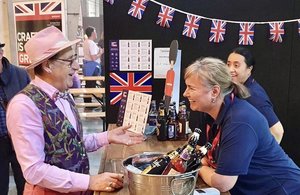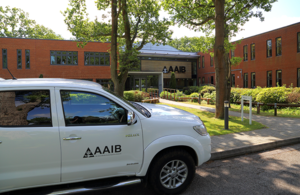UK’s most sustainable breweries at New Zealand’s biggest beer festival
World news story
Innovative UK breweries will feature on the GREAT stand at New Zealand’s premier celebration of good beer.

The UK returns to Beervana to showcase Britain’s most innovative breweries
Eight of the UK’s most innovative breweries will feature on the UK’s Department for International Trade’s Great Britain stand at Beervana in Wellington from the 13 to 14 of August.
As New Zealand’s premier celebration of good beer, the Great Britain stand will bring international beer lovers together.
The 8 breweries featured on the stand are:
Greene King Brewery and Shepherd Neame are members of the UK’s ‘Net Zero Now’ initiative launched in July 2021. This scheme is an industry protocol and certification standard which will help bars and pubs across Britain reach net-zero before the national legal deadline of 2050.
Britain’s oldest brewery, Shepherd Neame, founded in 1698 has repeatedly pioneered sustainable brewing methods. They recycle 97% of the grain and hops used in the brewing process and their waste management was restructured so they could convert it into biofuel. In 2013 Shepherd Neame also invested in a £3 million water recovery plant which enabled them to reduce their water consumption by 40%.
British Consul General and Deputy Trade Commissioner Asia Pacific (Australia and New Zealand) Louise Cantillon said:
We are proud to be featuring 8 of the UK’s most innovative and sustainable breweries at Beervana 2021.
Beer is one of the UK’s top 3 food and drink exports with over 1 billion pints exported every year. Through the future UK-New Zealand Free Trade Agreement we will continue to strengthen opportunities to export high-quality British food and drink products so they can be enjoyed by a wider New Zealand audience.
Today UK breweries employ 870,000 people either directly or indirectly. Every job in brewing supports 18 employees in pubs, one employee in farming, one in the supply chain and one in retail.
Media contact
Bailee Dean
Public Relations and Communications Manager
UK’s Department for International Trade
British Consulate General Sydney
Published 12 August 2021
